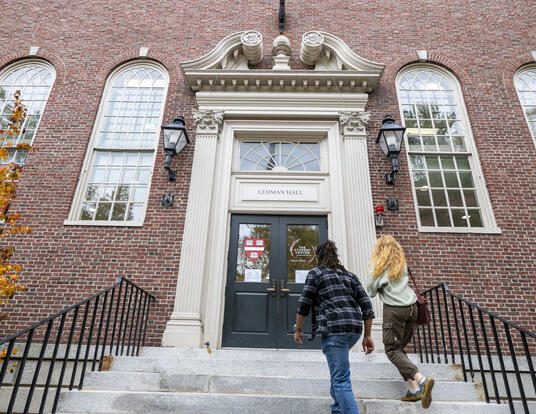Be Well: Celebrate Wisely
Managing substance use over the holidays

As the holiday season draws near, we anticipate family gatherings, reunions with friends, and a welcome break from schoolwork. While many view these as a recipe for joyful celebration, others see them as the ingredients for a season of stress. Health educators and researchers acknowledge this “darker side” of holiday cheer, recognizing that prioritizing wellbeing often takes a backseat amid the joyful—and sometimes chaotic and difficult—celebrations.
Whether you’re preparing to embrace the festivities or navigate the pressures that the holidays can bring, alcohol and other substances can often take center stage. The National Institute on Alcohol Abuse and Alcoholism highlights a concerning trend: binge drinking—defined as five or more drinks for men and four for women—often surges during the holidays, especially among young adults. Additionally, according to the American Psychological Association in 2023, 41 percent of those surveyed stated that their stress increased during the holiday season. Increased stress levels can lead to excess use of substances to try to cope. 38 percent of adults who experience stress during the holidays state they use negative coping mechanisms.
Understanding one’s personal relationship with alcohol and substances is crucial for maintaining wellness.
Whether you are celebrating or coping during the holiday season, you don’t have to be one of the statistics. The Center for Wellness and Health Promotion (CWHP) provides supportive resources and guidance that enable Harvard Griffin GSAS students to explore healthier and safer ways to potentially celebrate and/or manage stress.
One Size Does Not Fit All
At the CWHP, we recognize Harvard students have different relationships with alcohol and substance use. That’s why we offer an array of services tailored to diverse needs. Our programs include alcohol and substance use education, personalized individual consultations, and referrals.
Understanding one’s personal relationship with alcohol and substances is crucial for maintaining wellness. We ask students to explore these important questions: Why do you choose to drink or use substances? What do you like or dislike about that experience? How much do you drink or use and how frequently? Additionally, the CWHP provides essential information and education about alcohol, including its effects on the body, how blood alcohol concentration is calculated, and what constitutes a standard drink:
- Wine (alcohol by volume: 11 to 16 percent): 5oz = 148ml
- Beer/Seltzer (alcohol by volume: 3 to 5 percent): 12oz = 355ml
- Liquor (alcohol by volume: 40 percent or 80 proof): 1.5oz = 44ml
Strategies to Reduce Risk
The CWHP’s goal is to empower students with the knowledge to make informed decisions about their relationship with alcohol and other substances. If you choose to engage with these, we’ll help you identify strategies to have a safer experience. Here are some to consider:
- Eat before drinking: food in your stomach can slow the absorption of alcohol.
- Pace yourself: avoid having more than one drink per hour.
- Alternate drinks: alcohol is dehydrating. Drink water or a non-alcoholic beverage to help rehydrate and slow your pace.
- Set a drink limit before you go out: remember the definitions of binge drinking mentioned above.
- Group up: get together with friends who want to join you in celebrating responsibly.
Whether you choose to engage in drinking alcohol or using substances this season or not, there are safer ways to celebrate or cope with the stressors of the holidays. The Counseling and Mental Health Services (CAMHS) Cares line (617-495-2042) is a 24/7 support line for Harvard students seeking assistance during the holidays (and any other time!). Reach out for support when you need it, whether you are on or off campus.
For more information on navigating your relationship with alcohol and substance use, feel free to contact the CWHP. And remember to stop by the Office of Student Services in the basement of the Student Center at Harvard Griffin GSAS, room B-2, if you have challenges or concerns and need hands-on help.
Get the Latest Updates
Join Our Newsletter
Subscribe to Colloquy Podcast
Simplecast





